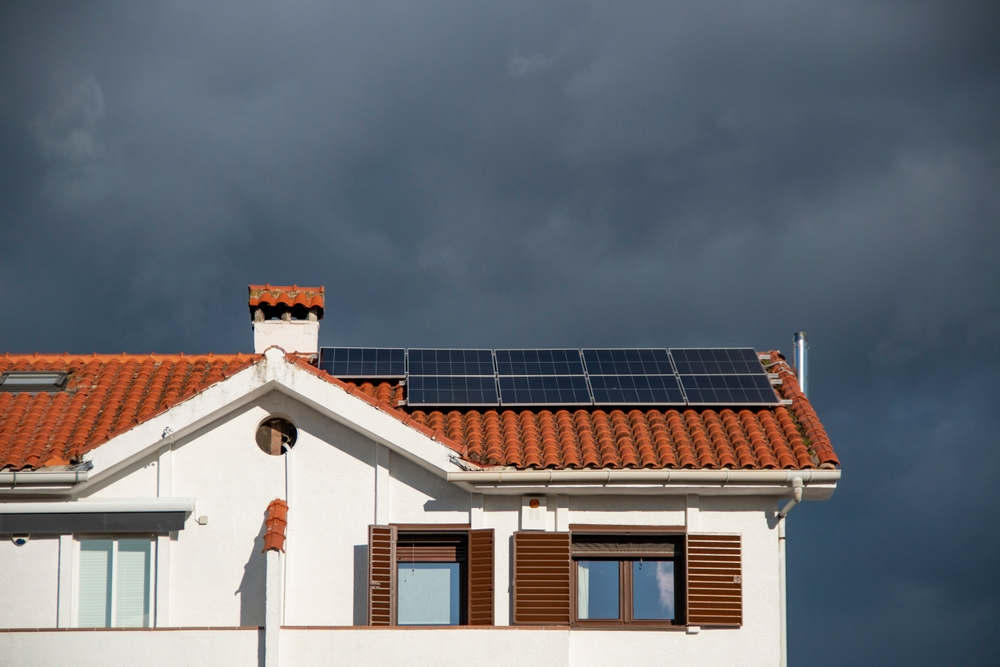Solar energy is often associated with sunny skies and clear weather, but what happens when the weather turns cloudy or rainy?
Many prospective solar panel owners wonder if their investment will pay off in less-than-ideal weather conditions.
Here, we will explore how solar panels operate during cloudy and rainy weather and how they can still provide significant benefits even when the sun isn’t shining brightly.
Solar Panels on Cloudy Days
It’s a common misconception that solar panels only work in direct sunlight. While it is true that they are most efficient under direct sunlight, they can still generate electricity under cloudy conditions.
Solar panels convert light into electricity using photovoltaic (PV) cells, and while sunlight is ideal, diffuse light from overcast skies still activates these cells.
On cloudy days, solar panels can operate at about 10-25% of their normal capacity, depending on the thickness and density of the cloud cover. However, modern solar panels are becoming increasingly efficient, even in less-than-ideal weather conditions.
Recent advancements in solar technology have led to the development of panels that are more sensitive to a broader spectrum of light, including the ultraviolet (UV) light that penetrates through clouds. This means that even on overcast days, solar panels can capture and convert UV light into electricity.
Another critical component to consider is energy storage. Solar power backup systems often include battery storage solutions that allow excess energy generated on sunny days to be stored for use during cloudy days or nighttime. This ensures a continuous supply of energy regardless of weather conditions.
Geographic location also has an impact on solar energy production on cloudy days. Regions with frequent overcast conditions may experience more significant reductions in efficiency, but even these areas can benefit from solar energy, particularly with systems designed to maximize diffuse light capture.
Impact on Rainy Days
Rainy days, while often cloudier, can benefit solar panel performance in the long run. Rain helps to keep your panels operating efficiently by washing away any dust or dirt, thus allowing better light absorption.
Regular rainfall can reduce the need for manual cleaning and maintenance, ensuring that the panels operate at optimal capacity.
Moreover, rain cools the solar panels which helps them operate more efficiently. Overheating can reduce the effectiveness of photovoltaic cells, so the cooling effect of rain can lead to more consistent performance.
While solar panels perform best in direct sunlight, they are still effective on cloudy and rainy days. By understanding how weather impacts solar panel performance, homeowners and businesses can make informed decisions about their solar energy investments, ensuring reliable power generation regardless of the weather.
